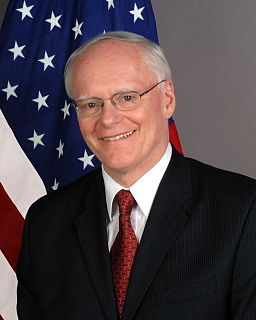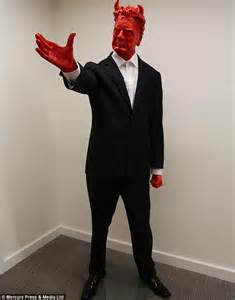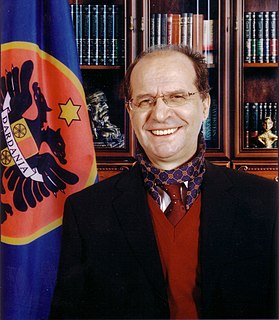A Quote by Richard Edelman
It may be fine for an artist to be indifferent to the reaction of the viewer to a work of art. A vigorous debate on issues is also beneficial. But the dark vision of a world without truth cannot be our future.
Related Quotes
An artist requires the upkeep of creative solitude. An artist requires the healing of time alone. Without this period of recharging, our artist becomes depleted. Until we experience the freedom of solitude, we cannot connect authentically. We may be enmeshed, but we are not encountered. Art lies in the moment of encounter. We meet our truth and we meet ourselves and we meet our self-expression.
There is always, in the fine arts, a physical interface between the artist's esthetic vision and the material result he seeks. The interface may be the application of brush to canvas, chisel to marble, bow to string... It may be the control of voice in song or the control of body in dance. It is the mastery of the interface that comprises the artistry; it is what constitutes the 'art' in fine art.
Art and science work in quite different ways: agreed. But, bad as it may sound, I have to admit that I cannot get along as an artist without the use of one or two sciences. ... In my view, the great and complicated things that go on in the world cannot be adequately recognized by people who do not use every possible aid to understanding.
Our future may lie beyond our vision, but it is not completely beyond our control. It is the shaping impulse of America that neither fate nor nature nor the irresistible tides of history, but the work of our own hands, matched to reason and principle, that will determine our destiny. There is pride in that, even arrogance, but there is also experience and truth. In any event, it is the only way we can live.
Fine art, that exists for itself alone, is art in a final state of impotence. If nobody, including the artist, acknowledges art as a means of knowing the world, then art is relegated to a kind of rumpus room of the mind and the irresponsibility of the artist and the irrelevance of art to actual living becomes part and parcel of the practice of art.
Philosophy, for Plato, is a kind of vision, the 'vision of truth'...Everyone who has done any kind of creative work has experienced, in a greater or less degree, the state of mind in which, after long labour, truth or beauty appears, or seems to appear, in a sudden glory - it may only be about some small matter, or it may be about the universe. I think that most of the best creative work, in art, in science, in literature, and in philosophy, has been a result of just such a moment.
Can we who have had the joy of knowing that we are not orphans, that we have a Father, be indifferent to this city which asks of us, perhaps even unwittingly, without being aware of it, a hope that will help it look to the future with greater confidence and serenity? We cannot remain indifferent. . . . Words without witness are hot air. Words do not suffice. It must be the true witness that Paul speaks of.
We may live without poetry, music and art; We may live without conscience, and live without heart; We may live without friends; we may live without books; But civilized man cannot live without cooks. . . . He may live without books,-what is knowledge but grieving? He may live without hope,-what is hope but deceiving? He may live without love,-what is passion but pining? But where is the man that can live without dining?



































